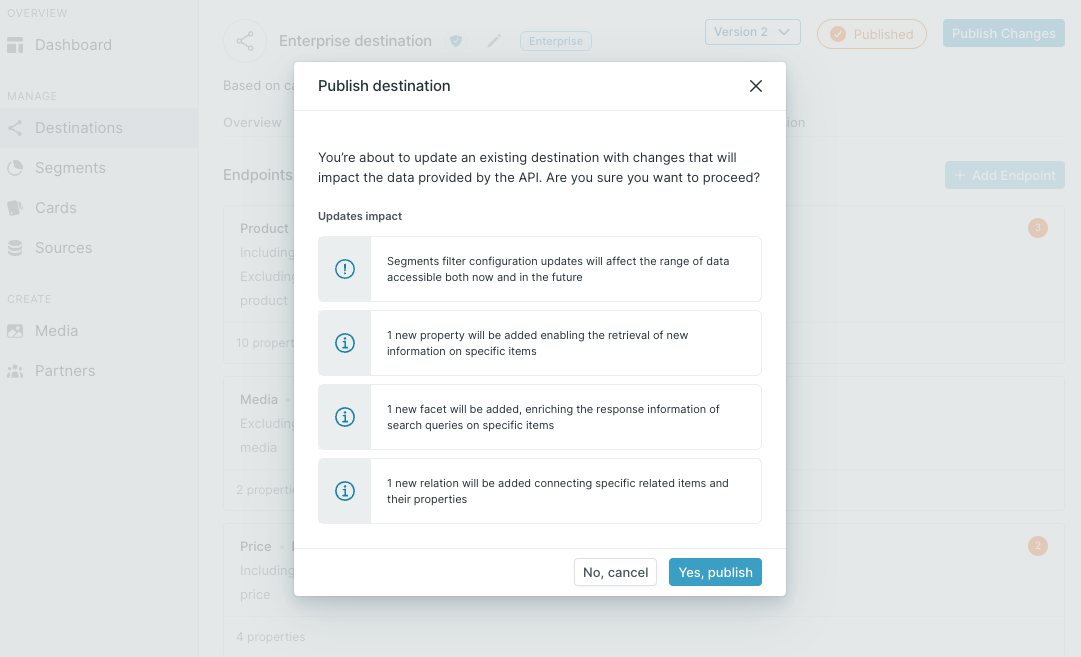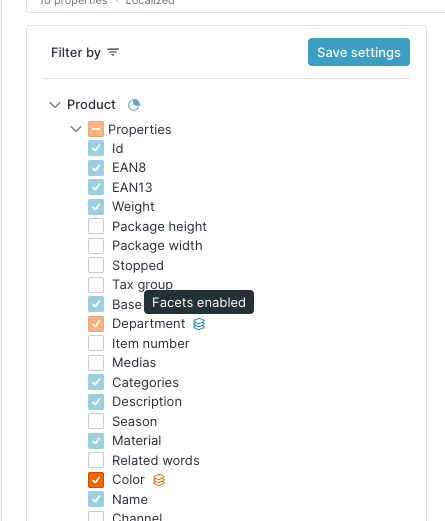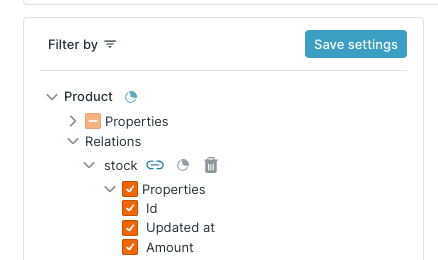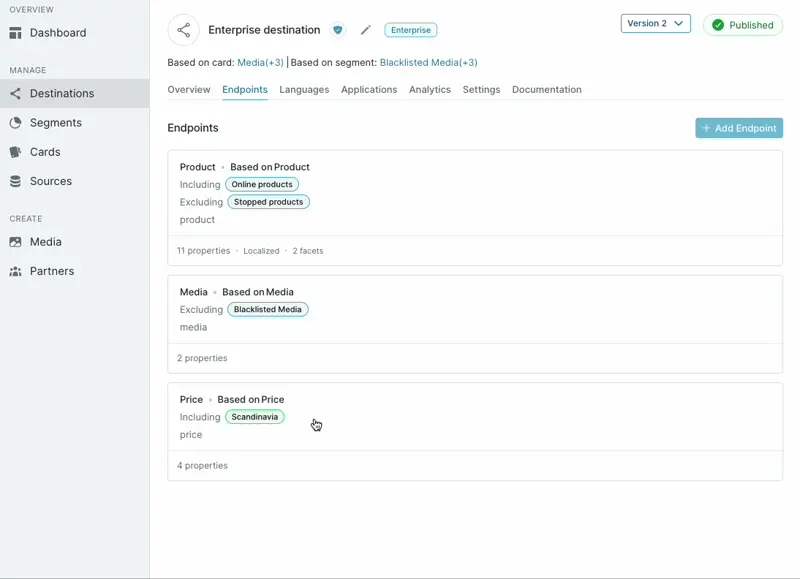Release 7th March
New features 🎉
Update existing destination
With this latest update to the Occtoo Studio, users now have the possibility to make non-breaking changes to their destination endpoints. This means that for any additions to existing endpoints, one doesn't need to create a new destination version, making life much easier for any dependent experiences

Users now have the possibility to add new or previously excluded properties to an endpoint. It is also possible to enable facets on existing properties.

Additionally, users can add relations, including related information directly.

Last but not least, users now have the possibility to alter the segments used in endpoints. The new update gives them the ability to include or remove segments, altering the presented result to their liking.

More information can be found in the docs.
Connected blocks
Each individual object in Occtoo blocks now has "connected blocks" section, visualizing and linking which other individuals they either contribute to or are dependent on. This makes the life of users easier as they now can follow the chain from any block in any direction, understanding how all things in between are connected.

In the example above we can see how the card "Customer" is based on the source named "Customer", and that it also is used by 3 segments and 8 destinations.
More information can be found in the docs per block: source, card, segment and destination.
Opt-in gzip response from destinations
With the latest release, we also enable the possibility to request API content to be compressed using gzip. Gzip compression drastically reduces JSON response size, boosting network efficiency and accelerating data transfer. This optimization cuts down on redundant information, resulting in faster loading times and smoother user experiences, especially on slower connections.
By setting the content header property Accept-Encoding to value gzip (NB! lower case) the response will be returned using gzip compression. Side note: This will only apply on new destinations and destination versions.
